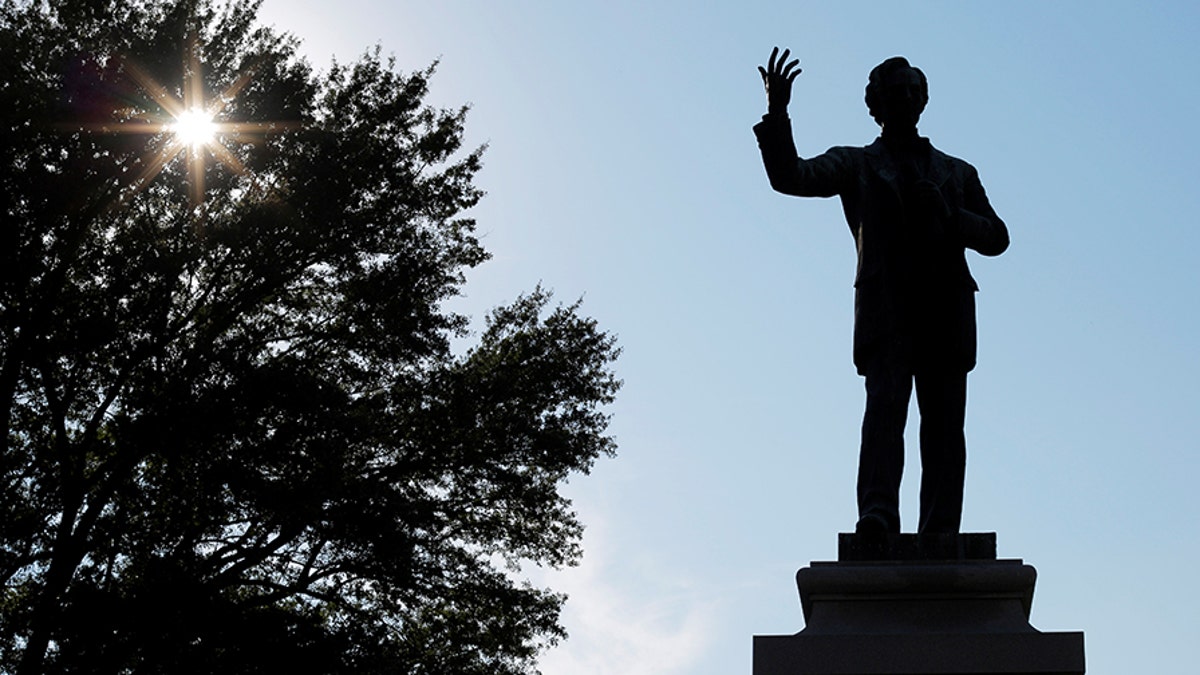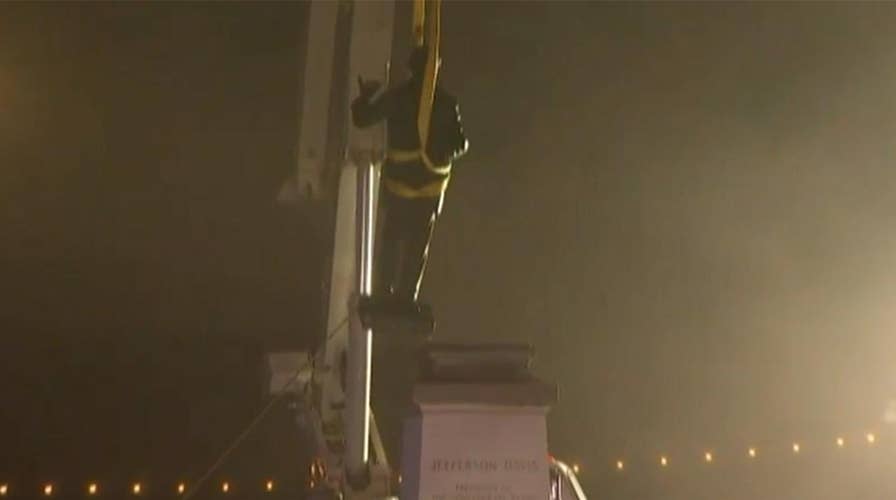Confederate statues removed after Memphis sells city parks
Two statues removed from two parks after the city council votes to sell the land to a private entity.
Crews removed two Confederate statues from two Memphis parks late Wednesday after the city sold them to a private entity.
The City Council voted unanimously earlier in the day to sell both Health Sciences and Fourth Bluff Parks where the Confederate statues were located.
Mayor Jim Strickland confirmed on Twitter that both Health Sciences and Fourth Bluff Parks “have been sold. Operations on those sites tonight are being conducted by a private entity and are compliant with state law.”
Within minutes of the vote Wednesday night, a heavy police presence was seen near the Health Sciences Park — where a statue of Nathan Bedford Forrest, a Confederate Army general, is located.
WHICH CONFEDERATE STATUES WERE REMOVED? A RUNNING LIST
The other statue, of Confederate President Jefferson Davis, was located at Fourth Bluff Park.
Council member Janis Fullilove told the newspaper it was a “crazy, crazy, crazy night."
"It's really going down in history that this is the night they are going to take the statues down," Fullilove said. "It's a historic moment.”

A statue of Jefferson Davis, President of the Confederate States, stands in Memphis Park, formerly named Confederate Park, in Memphis, Tennessee. (REUTERS/Brian Snyder)
Live video from Health Sciences Park captured cheers as the statue of Forrest was lifted off its marble base and placed on a flatbed truck. Police had cordoned off the area around the statue.
Memphis Mayor Jim Strickland said the statues would be stored in an undisclosed location.
Democratic Rep. Steve Cohen said in a statement that he commends the city “for finding a way to legally remove statues from an era that is not representative of Memphis today & have remained an affront to most of the citizens of Memphis.”
CONFEDERATE MONUMENT REMOVAL COSTS PILING UP FOR CITIES
Earlier this month, the city filed a petition asking for judicial review of the Tennessee Historical Commission's denial of a request to remove the Forrest statue, which The Commercial Appeal reported "has a long and controversial history in Memphis."
Supporters of keeping the statue in place said it represented an important part of history. The Sons of Confederate Veterans in Memphis has said such monuments do not represent white supremacy and it would be a mistake to remove them.
Forrest was a slave trader, Confederate general and Ku Klux Klan leader who became influential in the city's growth after the Civil War.
The Associated Press contributed to this report.


